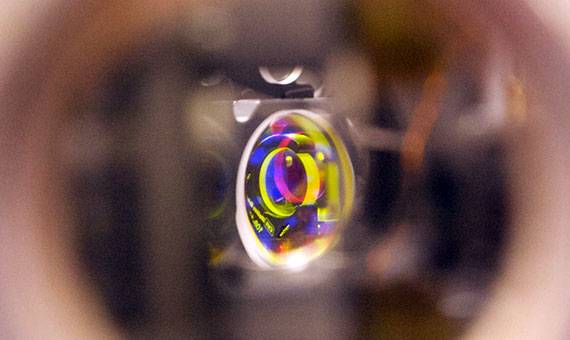
Jonathan Levine (physics and astronomy) and his collaborators F. Scott Anderson and Tom J. Whittaker (Southwest Research Institute) received a one-year award for their project “Laser-atom interactions in a mass spectrometer for dating Martian rocks.”
Their research goal is to increase understanding of the timing and timescales of Mars’s global climate change by estimating the ages of Martian rocks using a novel mass spectrometer. The spectrometer will determine rock ages by measuring the abundances of rubidium-87 and its radioactive decay product strontium-87 in dozens of spots in a rock sample, using intense lasers to separate atoms of these elements from each other and from the rest of the rock.
The research team will investigate the fundamental physics of how laser light interacts with atoms, so that they can best control those interactions to ensure maximum precision and accuracy in the rock ages they determine. Their ultimate goal is to fly the new spectrometer to Mars on a future rover mission and date rocks found there in their geologic context.
“This collaboration brings together a physicist, a geologist, and a physical chemist to push the boundaries on our abilities to age rocks on other planets,” said McHugh. “Their work has the potential for some very exciting results, both in fundamental physics and in our knowledge of Mars.”